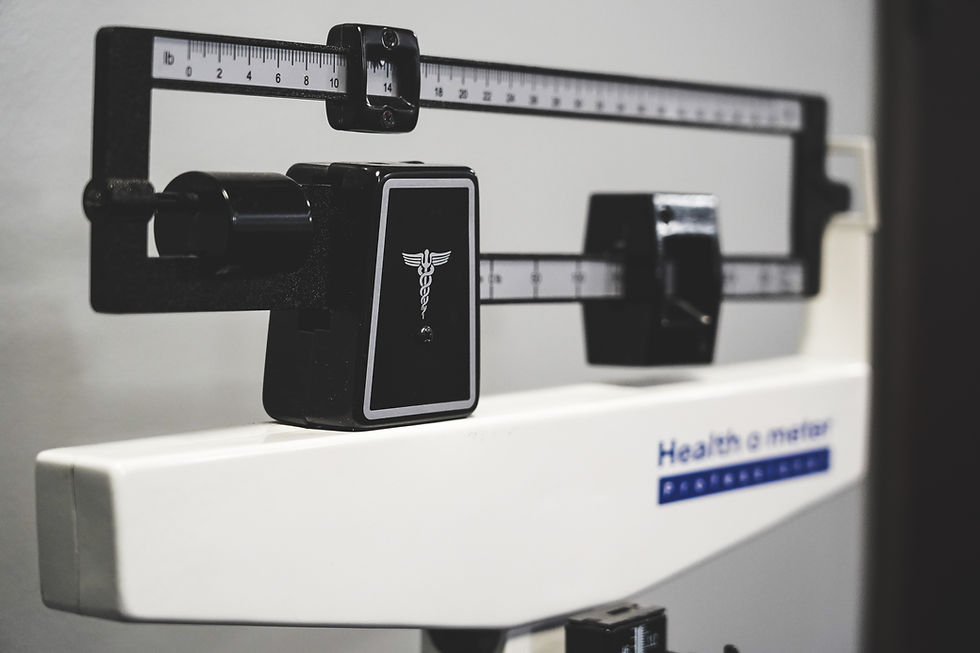Eating Disorders Support
- ellieanguelova
- Aug 24, 2022
- 2 min read
Updated: Aug 28, 2022
Eating disorders affect people of every age, race, gender identity, and sexual orientation. Eating disorders such as anorexia, bulimia, or binge eating are among the deadliest mental illnesses in the United States. Recovery from an eating disorder can take months, even years. Re-learning normal eating habits and coping skills can take a long period of time and often requires lots of support from professionals, friends, and family. It is important to

be patient and not expect results over night. It is challenging to be patient and remain calm when you watch someone you love struggle. However, getting upset and reacting on how you feel will not help them get better. People who struggle with eating disorders can be very secretive and protective of their eating disorder.
Signs to look for:
EMOTIONAL/BEHAVIORAL
-Weight loss, dieting, and control of food are primary concerns
-Food rituals
-Social withdrawal
-Frequent dieting, body checking
-Extreme mood swings
PHYSICAL
-Noticeable weight fluctuations
-Gastrointestinal complaints
-Dizziness upon standing
-Difficulty concentrating, sleeping
-Issues with dental, skin, hair, and nail health
Things you should avoid saying:
-“Should you be eating that?
-“Did you really eat the whole thing?”
-“You look good, have you lost weight?”
-“You don’t look like you have an eating disorder”
-“I wish I could lose weight and be this thin.”
-“You either eat or…”
-“Why can’t you just stop eating!?”
-“What you are doing is hurting me.”
-“You don’t look fat to me”
-“Just eat.”
-“You don’t need to follow your meal plan just eat what I cooked.”
-“Your doctor said you are fat.”
Ways you can support your loved one:
-Encourage them to follow through with treatment recommendations
-Distract your loved one during and after meals to help with anxiety
-Educate yourself on eating disorders
-Ask what you can do to help
-Ask how they are feeling
-Listen openly and reflectively
-Be patient and nonjudgmental
-Validate their feelings
-Refrain from telling the person what they should do or lecture them
-Focus on the emotional aspects of an eating disorder
-Model a healthy relationship with food, weight, and exercise
Helpful Books:
Dying to Be Thin: Understanding and Defeating Anorexia Nervosa and Bulimia--A Practical, Lifesaving Guide Paperback – August 1, 1987
by Ira M. Sacker MD (Author), Marc A. Zimmer PhD (Author)
Part of: NTC SELF-HELP (22 Books) | by Jenni Schaefer and Thom Rutledge | Dec 26, 2003
8 Keys to Recovery from an Eating Disorder: Effective Strategies from Therapeutic Practice and Personal Experience (8 Keys to Mental Health) Paperback – November 7, 2011
by Carolyn Costin (Author), Gwen Schubert Grabb (Author), Babette Rothschild (Foreword)



